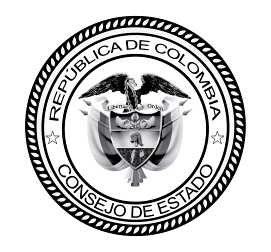remarks at dialogue on ‘the rule of law at the international level’ un headquarters, 15 june 2009 andré nollkaemper university of amst
Remarks at Dialogue on ‘the Rule of Law at the International Level’
UN Headquarters, 15 June 2009
André Nollkaemper
University of Amsterdam
I thank the Rule of Law Unit for inviting me. The topic of the rule of
law at international and national levels has received much attention
by research institutes in my home country, the Netherlands.
Implicitly, it underlies the idea of the Hague as Legal Capitol of the
World. At the University of Amsterdam have just started a major three
year research project on the international rule of law in cooperation
with the Hague Institute for the Internationalisation of the Law. This
panel presents an interesting opportunity to take the debate one step
further.
I was asked to address in particular three points at this Panel.
1.
Links between adherence to the rule of law in international
affairs and domestic affairs and how can each be strengthened by
strengthening the other.
First, I will address the links between adherence to the rule of law
in international affairs and domestic affairs, and how each can be
strengthened by strengthening the other.
This theme is extremely important and, I would suggest, should be at
the heart of the efforts of the United Nations to promote the rule of
law.
Traditionally the rule of law at international level, on the one hand,
and the rule of law at the national level, on the other hand, have
been seen as two separate issues.
To some extent that distinction is still valid.
The rule of law at the international law raises its own distinct
issues, such as the principle of non-intervention and dispute
settlement in the International Court of Justice – that often, though
not always, are quite far removed from rule of law concerns at
domestic level.
Likewise, the rule of law at national level raises its own distinct
issues, for instance problems of corruption at local level, that often
are quite far removed from the rule of law at international level.
We should continue to be aware of these differences and be wary of
attempts to automatic transplanting the domestic rule of law concept
to the international level.
However, it is also clear that there is much overlap. Indeed, the rule
of law at international level and the rule of law at national level
are mutually dependent, and increasingly so. They can strengthen each
other. In the long run rule of law at one level without rule of law at
the other level would not survive.
We can approach this interrelationship and mutual dependency both from
the perspective of international law and from the perspective of
national law.
As to the former: the rule of law at international level cannot do
without a domestic rule of law. In virtually all fields of
international law, compliance with international law is only possible
if there the relevant competent organs at domestic level are governed
by international law. That is obvious for all those areas where
international law substantively deals with the same issues as domestic
law and expressly or implicitly requires implementation at domestic
level, such as international human rights, international criminal law
and international environmental law. In these areas domestic law must
reflect international law.
The point is more generally true, however. The basic rules of
international law, that stipulate that a state shall not go to war
against another state and, if it does, shall not kill innocent
civilians, that are mostly thought of as interstate affairs, are
powerless if there is no connection between that international norm
and domestic law.
Also the principle of R2P inevitably rests on implementation of human
rights and principles of international criminal law at the domestic
level.
The full effect of international rights and obligations requires and
presupposes a domestic rule of law. Indeed, one cannot really conceive
of a rule of law at the international level, without a domestic rule
of law.
The mutual dependency between international law and domestic law also
is clear from the perspective of the rule of law at domestic level.
International law, particularly international human rights law,
strengthens and supports the domestic rule of law. It can protect the
autonomy of domestic courts vis-à-vis the political branches, and
protect individual rights against earlier of subsequent domestic law
that might violate such rights. Indeed, it is the permanent protection
provided by international law that makes clear that the rule of law is
more than the rule by law, which could be changed at the whims of
changed domestic political preferences.
It is telling that for instance in Eastern-Europe, after 1989, many
states opted for an automatic incorporation of international human
rights law, which helped to stabilize the political system and make it
less vulnerable to radical political changes.
From this close relationship, a number of policy recommendations would
seem to follow that are relevant to the work of the UN on the rule of
law.
First, policies to strengthen rule of law should necessarily aim to
improve domestic procedures and policies for the implementation of
international obligations. This has been said often before. However,
it remains a critical task in many states, where the translation to
domestic level is deficient, undermining the degree to which
international law can actually rule.
Second, while the task of domestic implementation is not at all
confined to human rights and has a much wider ambit, it also is clear
that human rights are particularly relevant for the rule of law and
that special attention should be given to proper domestic
implementation to international human rights standards. The almost
universal support for the relevant treaties make this the proper
benchmark of all rule of law policies.
This aim goes beyond the aim to make international human rights law
effective –, it has the power to entrench domestically the rule of law
and replacing the rule by law by the rule of law.
Third, we should not focus only at implementation of international
standards, but also to the structural institutional arrangements, in
particular the power of the courts to give effect to international
law, notably human rights standards. As noted in several of the SG
reports, these issues need to be addressed comprehensively. Rule of
law is more than just having a set of laws, whether or not in
conformity with international law. It is also about setting up
institutions that are sensitive to international and that provide
conditions for application and continuity of such laws.
The importance of this point goes beyond making international law
effective. It should also ensure that state organs in their external
relations are subjected to rule of law standards. Here lies a crucial
connection between the rule of law at international and the rule of
law at national level. Precisely the lack of power of courts to review
foreign policy issues domestically underlies much of the rule of law
concerns internationally.
Fourth, rule of law promotion, in particular in the area of
constitutional reform, should abandon the idea that international law
is neutral as regards the way international law domestically gives
effect to international law. There is no doubt that constitutional
models that allow for direct effect of human rights and that give
human rights a hierarchically higher position than ordinary laws
provide better guarantees for a sustainable rule of law, both
nationally and internationally – a fact clearly recognized by the
Human Rights Committee and the Committee on Social, Economic and
Cultural Rights. Not in all countries can such models be adopted, but
there are many intermediate positions, that may go some way to protect
the international and national rule of law.
The task that follows from these four points is much more complicated
than it may seem. Each of these four points, seeking to improve the
connection between the international and the domestic level, are
subject to two major qualifications.
First, it is clear that constitutional, legislative and institutional
reform aimed at implementing international law leads to nothing unless
embedded in a much wider sets of policies aimed at rule of law reform.
There is a long list of failed projects in rule of law development,
from judicial reform to human rights institutions to democracy
building – and we should be aware of the lessons learned in all such
failed project. These lessons are above all that we should recognize
the diversity of local context and not seek a one size fits all
approach, even where it concerns international law.
The second qualification is that all of this is only going to work if
protection of the rule of law does not only focus on domestic levels;
but extend to international institutions, and more generally the
processes of international law-making and law-adjudication. These
should be embedded in a proper rule of law governed context – not
identical but in certain respects comparable to the rule of law
standards as we seek domestically. This holds for the Security Council
sanctions, but there are many other examples.
Recent evidence suggests very clearly that states willingness to allow
international law domestically, in turn creating the conditions for
external international observance, is contingent on the substantive
rule of law quality at international level.
Constitutional reform supported by the UN appropriately should take
into account these sensitivities, indeed warning against a full and
unqualified monistic approach. It is telling that even the
Netherlands, often heralded as a monist state that grants event
supremacy to international law over the constitution, has initiated
discussions on the need to protect constitutional values against the
effect of international decisions that would fall short of rule of law
standards
Recognizing that fundamental human rights are shared between
international and domestic law is key here. It is precisely because of
the domestication of these rights, and the protection they may provide
against arbitrary and oppressive laws, that continental European
states have been able to accept full power of international law – not
blindly, but conditional on its compatibility with such fundamental
rights.
In conclusion, there thus is a need for a comprehensive rule of law
policy, including both the international and the national level,
recognizing the diversity between states. I do note that the work of
the UN has come a long way. Whereas in the Millennium Declaration
international and domestic rule of law concerns were largely
separated, the 2008 SG report in various ways does recognize the links
between such concerns and as such provides a proper platform for
further pursuing this agenda
2.
What steps can be taken to enhance action by Member States and the
Organization to combat impunity and strengthen universal justice
The second item that I was asked to address is what steps can be taken
to enhance action by Member States and the Organization to combat
impunity and strengthen universal justice.
First of all it should be noted that the approach to the international
rule of law thus far has been somewhat imbalanced, focusing strongly
and almost exclusively on individual criminal responsibility and
criminal justice and excluding responsibility of states and
international organizations. International responsibility of all
subjects of international law is key to any concept of the
international rule of law.
If I nonetheless confine myself to criminal justice, it seems that the
key elements of the way forward here are clear: strengthening
adherence to the ICC, and supporting its work through effective
cooperation.
However, it is clear that this will cover only a very narrow part of
what is necessary to combat impunity. Here too, an inextricable link
exists between the international and the national level. A combination
of jurisdictional limits, limits to trial possibilities, enforcement
limitations and protection of sovereign entitlements of states imply
that the vast majority of trials of individuals suspected of
perpetrating criminal offences in the context of mass atrocity
situations is expected to take place before the domestic courts of the
state in whose territory the events took place, or in the state of
nationality of the perpetrators.
In the 2004 report on transitional justice it still was written that
depite the possibilities at national level, effort should be made to
strengthen justice at the national level. I would think that if this
report were written now, the emphasis would be laid in the ohter
direction.
Domestic trials do not only present a way to reduce costs and improve
enforcement capabilities, they may also enjoy greater social
legitimacy than trials conducted by international courts that are far
removed from the events discussed on trial and are sometimes accused
of being ignorant of local conditions and history, offering the
accused an inhospitable forum, and embracing a selective approach
toward some parties to some conflicts.
In addition to strengthening the ICC, then, combating impunity will
require a strengthening of domestic capacity. This is to some extent a
question of domesticating appropriately international crimes. It is
more a matter of institutional power, independence and ability to
conduct trials in post conflict setting. Of the many points that
require action, let me just mention two.
First, there is a need to optimize the the impact of international
court procedures on domestic procedures for putting to trial the
perpetrators of mass atrocities. This may include the formation of
formal – or semi-formal links between national and international
courts, closer alignment of procedures and work methods, the
generation of incentives for national courts to prosecution,
reallocation of budgets, sharing of staff, lending of support by
international to the operation of national courts, etc. Such policies
would reflected that at least to some extent, international and
domestic criminal courts are involved in a common endeavour to secure
justice, and do not operate in isolation. At present we are conducting
a major project for the EU on this topic, and the outcomes may well of
interest to the work of the UN on rule of law promotion.
Second, we also need to recognize that international criminal courts
may not be best positioned to strengthen the capacity of national
courts. After all, they are organized with a view to conduct trials,
not to engage in capacity buildigng or judicial training. It thus is
important that better links are established between the activities of
international courts, on the one hand, and the variety of rule of law
supporting procedures, througth the UN or otherwise, on the other.
Improving domestic criminal justice thus will require a partnership
between UN, international criminal tribunals that may operate outside
the framework of the UN , and a variety of other institutions.
3.
How can the role of the United Nations, including the
International Court of Justice, in the peaceful settlement of
disputes be strengthened and what steps can be taken to promote
other international dispute resolution mechanisms
The third item that I was asked to address was ‘How can the role of
the United Nations, including the International Court of Justice, in
the peaceful settlement of disputes be strengthened and what steps can
be taken to promote other international dispute resolution mechanisms’
In contrast to the first two items, this is a topic that relates
primarily to the rule of law at international levels.
However, primarily does not mean exclusively. A major contribution to
prevention of international disputes can be offered by domestic courts
that are able and capable to handle international claims. There are
encouraging signs across the globe that show that domestic courts
increasingly see their role in this way. These practices, aiming at
prevention of international disputes, should be strengthened.
A further obvious link, recalled in the GA resolution adopting the
Millennium Declaration, is that the rule of law requires that
decisions of international courts can only actually contribute to
settlement of disputes if they are properly effectuated at domestic
level. This too is an aspect where rule of law at domestic level and
at international level meet.
Turning to international dispute settlement itself, the first thing to
note that we have enormous steps forward in the past decades. More use
is made than ever before of international dispute settlement
proceedings. Indeed, it is as a result of this progress that it has
become fashionable again to speak of an international rule of law in
the first place.
That being said, there is much work to be done. Let me address briefly
two aspects.
First, states have made clear that they have a preference for treaty
based institutional arrangements over bilateral dispute settlement
outside such frameworks. The various monitoring and non-compliance
procedures under multilateral environmental arrangements are a case in
point. I should recall that in the SG definition of rule of law,
accountability is a key element of the rule of law, distinct from
adjudication by international courts. Even if these institutionalized
procedures do not lead to formal adjudication, they may perfectly well
provide adequate accountability and as such contribute to the rule of
law. This is one of the areas where the international rule of law
should take into account the specific nature of the international
legal system.
With the progressive institutionalization of international law,
efforts to strengthen the international rule of law should not be
confined to strengthening classic dispute settlement, but should also
focus as the lessons that have been learned so far from
institutionalized procedures for monitoring compliance, and to
identify to what extent they can be extended to other
treaty-arrangements.
Second and finally, a few words on the ICJ and the UN. The number of
cases before the ICJ is larger than ever before. But this does not
necessarily mean that the role of the Court in the system of dispute
settlement is increasing. Probably the reverse is true. As states more
and more look elsewhere for settlement of their disputes, the relative
role of the ICJ decreases.
One could argue that this does not necessarily present a problem and
that it does not matter where and how disputes are adjudicated, as
long as they are adjudicated. That may be so, but there is one caveat
to be made.
If the rule of law at international level exists, it should have a
common substantive core, in the sense that it is based on a relatively
clear set of fundamental principles that is shared across the
international legal order. From that perspective, we are witnessing
serious countervailing trends due to the specialization of
international law and the formation of functional treaty based regimes
with their own dispute settlement proceedings.
International courts in these treaty based regimes, such as the ECHR
have indicated that they are willing to listen to the center, but then
that center should be there. That center is the ICJ and more generally
the UN. The challenge is to preserve and perhaps strengthen the
position of the ICJ in relation to the large number of special
regimes.
This may in part be done through inclusion of clauses for compulsory
jurisdiction in particular treaty arrangements, which hold more
promise than declarations under article 36(2); development of the
concept of article 48 of the Articles on State responsibility,
allowing non-injured states to bring a claim to the Court, and
strengthening its power to provide advisory functions.. But perhaps
more important for the authority of the Court than increasing the
number of its cases, is how the Court itself defines its role. In the
drafting of its judgments the Court itself holds a key to enhancing
the authority of the court vis-à-vis other international courts and to
hold the center in a rule of law based in international system.
7
 ETIČKI KODEKS DRŽAVNIH SLUŽBENIKA I OPĆE ODREDBE PREDMET ETIČKOG
ETIČKI KODEKS DRŽAVNIH SLUŽBENIKA I OPĆE ODREDBE PREDMET ETIČKOG TEMA WINDOWS CONTENIDO 01 COMPONENTES DEL ORDENADOR EXPOSICIÓN ¿QUÉ
TEMA WINDOWS CONTENIDO 01 COMPONENTES DEL ORDENADOR EXPOSICIÓN ¿QUÉ STAVBA SO 01 POLYFUNČNÝ DOM STUPEŇ PD PROJEKT PRE
STAVBA SO 01 POLYFUNČNÝ DOM STUPEŇ PD PROJEKT PRE SURAT PERNYATAAN BERSEDIA DIANGKAT MELALUI INPASSINGPENGANGKATAN PERTAMAPERPINDAHAN JABATAN) KE
SURAT PERNYATAAN BERSEDIA DIANGKAT MELALUI INPASSINGPENGANGKATAN PERTAMAPERPINDAHAN JABATAN) KE UNIDAD DIDÁCTICA EL MÉTODO CIENTÍFICO Y LA MEDIDA
UNIDAD DIDÁCTICA EL MÉTODO CIENTÍFICO Y LA MEDIDA RADICACIÓN 25000233700020130108901(23112) DEMANDANTE HIGH MEDICINE SA FALLO PACTOS O
RADICACIÓN 25000233700020130108901(23112) DEMANDANTE HIGH MEDICINE SA FALLO PACTOS O GRUPO 38 FECHA DE INGRESO DD MM AA INGRESO
GRUPO 38 FECHA DE INGRESO DD MM AA INGRESO A DULLAM HOMES HOUSING ASSOCIATION LIMITED UNLOCKING POTENTIAL SKILLS
A DULLAM HOMES HOUSING ASSOCIATION LIMITED UNLOCKING POTENTIAL SKILLS METODOLOGÍA PARA LA TOMA DE DECISIONES EN LA VIDA
METODOLOGÍA PARA LA TOMA DE DECISIONES EN LA VIDA